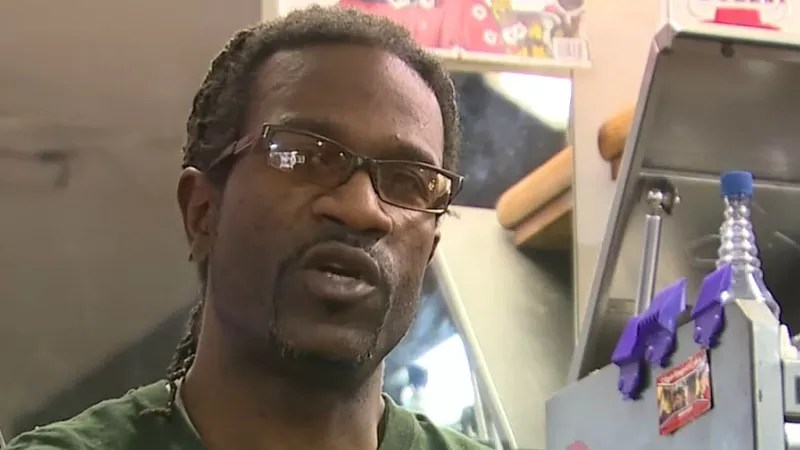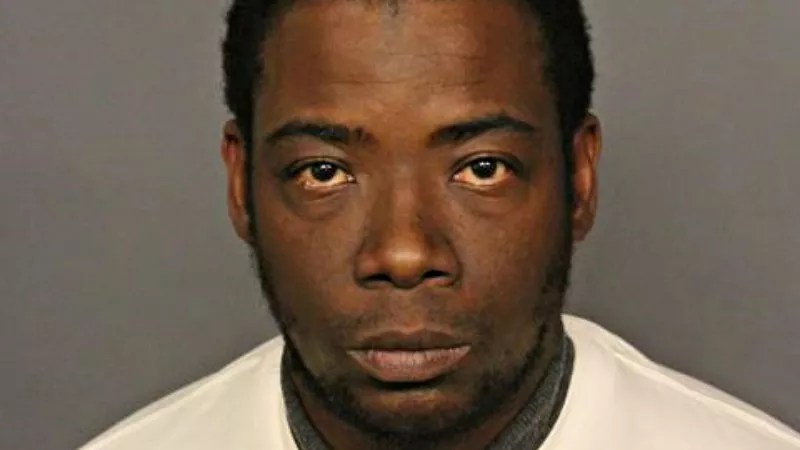
Denver7 via YouTube

Audio By Carbonatix
Are there still people in 2019 who believe that all black people look alike?
This question is at the core of a new lawsuit filed by Jamiyl Brown. According to attorney Barry Arrington, Brown, his client, was busted by moonlighting Denver Police Department officers while riding an RTD train even though the only resemblance between him and a suspect for whom the cops were searching “is that they’re both black men.”
The suit expands on this claim. “It is literally the case that Mr. Brown was detained, searched, handcuffed and arrested for the crime of ‘riding while black,’ in gross violation of his civil rights,” the document maintains.
Here’s how Arrington lays out the basics of the complaint.
Early on the morning of January 18, 2018, he says, “a guy named Earl Motton was accused of firing a gun into the ceiling of Mean Streets Ministries, a homeless shelter in Lakewood, and fled – and the Lakewood police were searching for him.”

A train arriving at the Decatur-Federal station.
KUNC via YouTube
None of this had anything to do with Brown, “who lives in Lakewood and owns a barbershop, Style-Dezign-N-Fades, in downtown Denver. That morning, he was riding the train to work.”
The light-rail train made regular stops at the Sheridan, Perry and Knox stations without incident. But at the Decatur-Federal station, the lawsuit reveals, the train came to a halt and an announcement was made informing passengers about an “emergency” and instructing them to remain calm.
At that point, defendants Thomas Bruce and William Seiwals, a pair of Denver police officers working security for RTD as a side hustle, boarded the train and removed Brown. He was subsequently patted down, and after the officers found that he had a gun in his possession, he was handcuffed and placed in a car to wait for the arrival of the Lakewood police. Arrington estimates that he lingered there for around thirty minutes before being released, with a citation for unlawful possession of a concealed weapon as a parting gift.
The suit maintains that RTD security officer Carlos Zuniga, the third named defendant, told Bruce and Seiwals that Brown matched Motton’s description, which Arrington finds bizarre.
“They had Mr. Motton’s name and they had a photo of him, and he’s five-seven and weighs 220 pounds – a short, heavy guy,” he allows. “Mr. Brown, on the other hand, is five-eleven and 167 pounds – a tall, thin guy.”
The visual dissimilarities were only the beginning.

The booking photo for Earl Motton.
Lakewood Police Department
“The complaint alleges that if you’re looking for someone whose name you know and you’ve got someone else you think might be him, the easiest way to proceed is to ask for identification,” Arrington says. “Then it would have been, ‘Sorry to disturb you, Mr. Brown,’ and that would have been it. But before they asked for his name or ID, they searched him, cuffed him and held him for half an hour before turning him loose.”
Motton was eventually arrested in Denver on the Lakewood warrant.
For his part, Brown was arraigned on the gun-possession beef last February, but after he moved to suppress all evidence by arguing that the search had been unwarranted, the case was dismissed. As for who was responsible for what happened to Brown, Arrington says, “Denver is pointing its finger at RTD, and RTD wouldn’t tell me anything.”
What’s clear to Arrington, though, is that Brown received the treatment he did because of his race. In his words, “I don’t think they would have stood him up, searched him and hauled him off the train if he’d been white.”
Click to read Jamiyl Brown v. Thomas Bruce, et al.